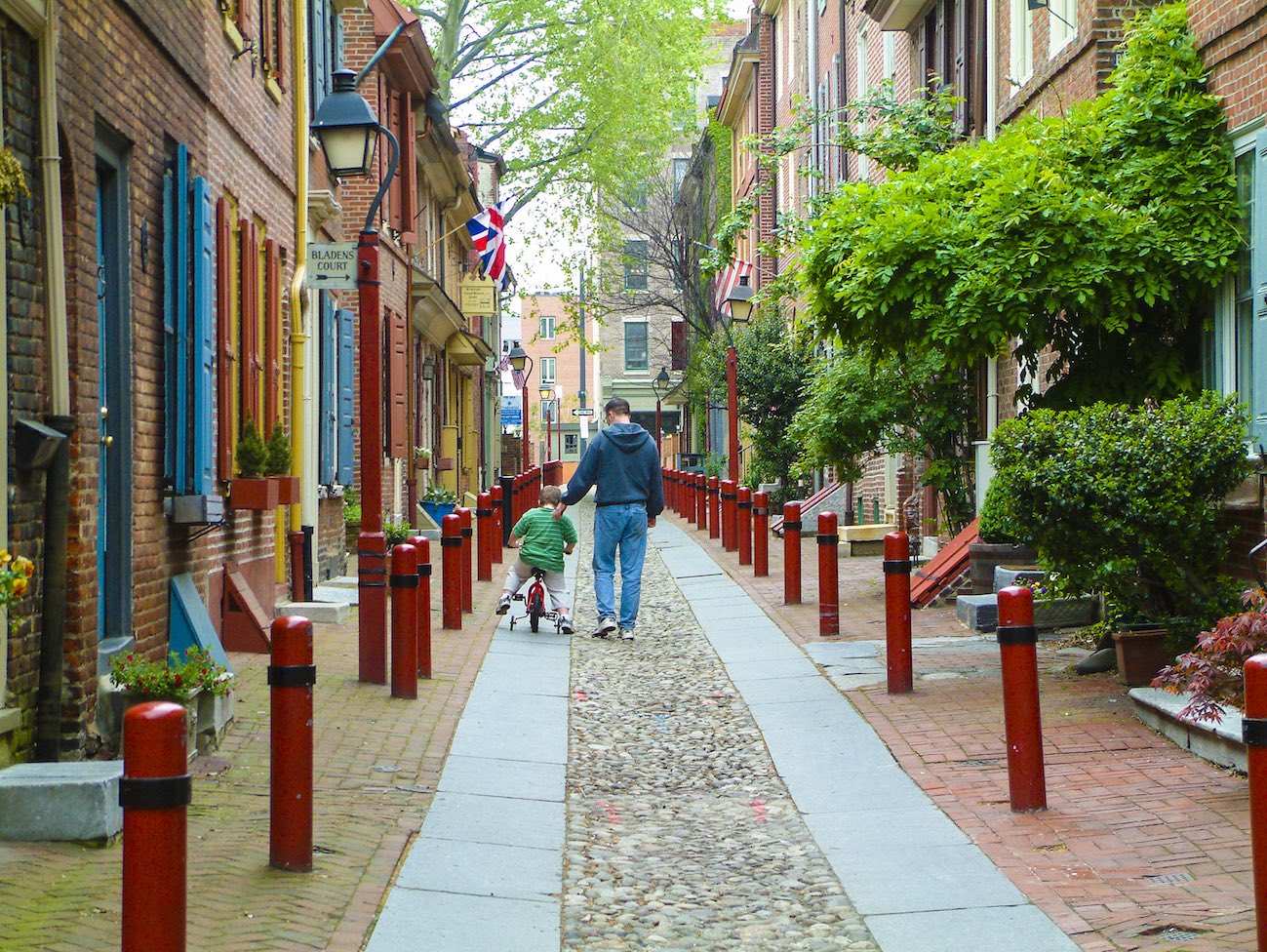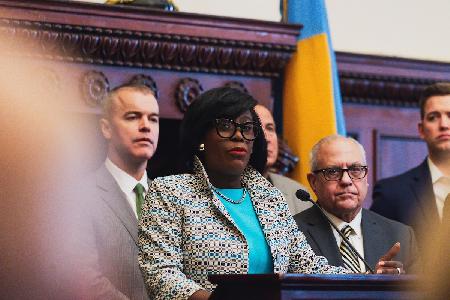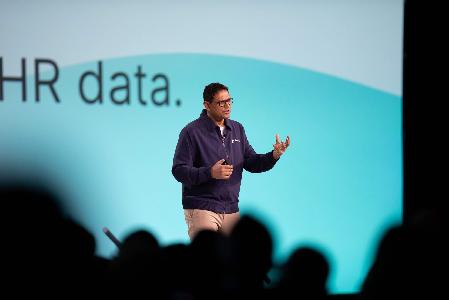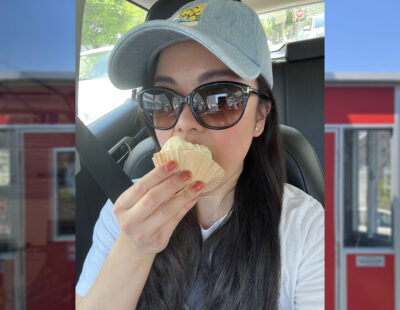The effects of COVID-19 have forced businesses and organizations across industries to adapt in creative ways. For Philadelphia historical site Elfreth’s Alley, that meant starting a podcast, “The Alley Cast,” that chronicles the history of the 18th-century street and one of the city’s most beloved communities.
After stay-at-home orders prevented the National Historic Landmark from being open, Elfreth’s Alley Associate Director Ted Maust and interns Isabel Steven and Joe Makuc saw podcasting as a way to connect with the museum’s audience and attract people who might want to visit when it reopens in the future.
The writing and grand plans Steven and Makuc planned for guiding tours could still be of use — just in a different way.
“Although releasing podcast episodes during quarantine is timely when people can’t visit sites in person, this podcast is a durable form of educational content for the museum,” Steven told Technical.ly in an email. “People can listen to it six weeks from now or six months from now, and it will still be relevant to the history of Elfreth’s Alley.
Steven said that while books may be more thorough than a 20-minute podcast and guided tours are dynamic experiences, podcasting can help connect Elfreth’s Alley to broader topics of Philadelphia’s history that are less directly related.
The history of intersectionality is an example of new information Makuc learned more about from his research preparing for the podcast.
“Intersectionality, or a theoretical framework for understanding how discrete kinds of oppression — such as racism and sexism — combine or overlap to harm people, has been around for centuries,” he said. “Black feminist Maria Stewart first articulated this kind of analysis in the 1830s and was shortly followed by Sojourner Truth in the 1850s. Although legal scholar Kimberlé Crenshaw coined the term ‘intersectionality’ in 1989, Black feminists have been calling out intersectional oppression for almost two hundred years in different terms, and using this theory to make a better world.”
“The Alley Cast” has only four episodes so far, but it draws influences from several well-known podcasts.
Steven cites the types of questions asked on NPR’s “Throughline” podcast as methods she adopted for the Elfreth’s Alley podcast. She also refers to historian Patrick Wyman and his “The Fall of Rome” podcast as a “great standard” of a single person researching, writing and producing their own podcast.
For Maust, the snapshots of time discussed on history podcast “The Memory Palace” inspired his work with the Elfreth’s Alley podcast. Hannah Hethmon’s book “Your Museum Needs a Podcast” also helped guide the process of shifting from guided tours to podcasts.
Maust said that while Elfreth Alley’s cobblestone streets and antiquated homes make the neighborhood look like it hasn’t changed in 300 years, the area around it has changed tremendously, and “The Alley Cast” is the perfect way of conveying that message.
“Being located in Philadelphia’s Old City, we have really easy connections we can make to early Philadelphia, but we are also right next to I-95, so then I think we’re relevant to the mid-20th century story too,” he said. “And of course with the boom in luxury apartments right around the corner from us, and the arts and theater scene in this neighborhood, I think we’re still very relevant to conversations about Philadelphia’s present and future.”
As the Elfreth’s Alley podcast team continues to work on episodes, Maust believes several other Philadelphia neighborhoods are also worthy of podcasts about their history.
“I would love to hear a podcast about the neighborhood around Mother Bethel AME, for instance, which was home to predominantly Black residents, and then recent immigrants, and then gentrified,” he said. “I think the Church of the Advocate in North Philly has a lot of interesting stories to tell, from the stained glass windows and Black Panther Party murals to the neighborhood’s relationship with Temple University. The church has a bunch of youth programs which could make a podcast that I would totally listen to. I think of churches as these static landmarks, around which the world can change sometimes.”
Michael Butler is a 2020-2022 corps member for Report for America, an initiative of The Groundtruth Project that pairs young journalists with local newsrooms. This position is supported by the Lenfest Institute for Journalism.This week, we will have a new episode of #TheAlleyCast, but next week we are planning to pull back the curtain and have the team discuss our process. We would love to answer some questions from the audience! What questions do you have for the team?
-TM
— Elfreth's Alley Museum (@elfrethsalley) July 20, 2020
Join the conversation!
Find news, events, jobs and people who share your interests on Technical.ly's open community Slack





